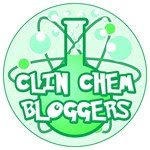
The Posterior Pituitary Gland also called as nuerohypophysis comprises the posterior lobe of the pituitary gland and is part of the endocrine system. There are three regions of the posterior pituitary, the posterior lobe which constitutes the majority of the posterior pituitary, the infundibular stalk or also known as the “infundibulum” or “pituitary stalk” and the median eminence which is occasionally included as part of the posterior pituitary.
According to different sources the Posterior Pituitary Gland is not a Gland, instead it is just a mere collection of large axonal projections from the hyphothalamus.
There are 2 major hormones released by the Posterior Pituitary;

Oxytocin stimulates the contractions of the smooth muscle in the uterus during the last stage of pregnancy to motivate the ejection of the fetus and also responsible for producing milk in the mammary glands of women after giving birth
Vasopressin or also known as the Anti Diuretic Hormone (ADH) helps the kidneys conserve the correct amount of water in the body to regulate urine exretion.
Links:

Oxytocin stimulates the contractions of the smooth muscle in the uterus during the last stage of pregnancy to motivate the ejection of the fetus and also responsible for producing milk in the mammary glands of women after giving birth
Vasopressin or also known as the Anti Diuretic Hormone (ADH) helps the kidneys conserve the correct amount of water in the body to regulate urine exretion.
DISORDERS OF THE POSTERIOR PITUITARY
Insufficient amount of ADH may lead to Diabetes Insipidus.
Excess amount of ADH may lead to Syndrome of Inappropriate Antidiuretic Hormone Secretion (SIADH).
Excess amount of ADH may lead to Syndrome of Inappropriate Antidiuretic Hormone Secretion (SIADH).
http://www.newworldencyclopedia.org/entry/Pituitary
http://arbl.cvmbs.colostate.edu/hbooks/pathphys/endocrine/hypopit/oxytocin.html
http://arbl.cvmbs.colostate.edu/hbooks/pathphys/endocrine/hypopit/adh.html
http://cal.man.ac.uk/student_projects/2000/mnby6kas/posterio.htm
http://www.chp.edu/CHP/P01972
http://www.chp.edu/CHP/P01974
http://www.ualberta.ca/~somji/pituitary_3.GIF
http://www.as.wvu.edu/~rbrundage/lecture2c/sld012.htm
References:
A Manual of Laboratory and Diagnostic Tests 7th Edition By: Frances Fischbach
John Bernard Henry 21st edition
Clinical Chemistry by Michael Bishop
http://en.wikipedia.org/wiki/Posterior_pituitary_gland
http://www.newworldencyclopedia.org/entry/Pituitary



PLEASE CHANGE YOUR PRIMARY PICTURE IN YOUR PROFILE. ITS KINDA DISGUSTING. EWW.
ReplyDeleteTim,
ReplyDeleteKindly summarize your post. Meron mga more than 5 words na lifted from wikipedia. Kindly edit your post. Thanks.
Excellent post! But I am still looking for some information about preparation and analysis of specimens. These are basic stuff for medtechs. I am sure that your readers would appreciate that part.
ReplyDeleteOverall: good theme, add some content and keep writing.
Zorlone
Good job!Nice template!
ReplyDeleteNice post and well stated.
Looking forward to your next post...=)
Doc Zorlone thank you po for the visiting and commenting my blog. About po dun sa preparation and analysis of specimen, kasi po ang naasign lang pong topic sakin is Ana Physio of Posterior Pituitary Gland.
ReplyDeleteThank you po ulit for the comment..
Appreciate it a lot..
tnx
-timz
nice post,
ReplyDeletethe hyperlinks was really a good help.
great work timz,
ReplyDeletei life your blog.
complete the impormation about your article..
keep it up..=)
very comprehensive post. and good template. keep it up kuya timz..
ReplyDelete